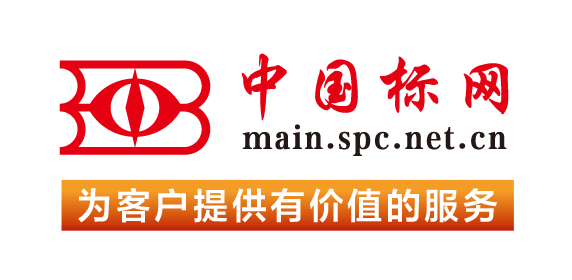This standard provides protocols for measurement and control networks for home and residential quarters, so that they can achieve green, smarter functions. It specifies the interactive data format between devices and systems; and it gives standardized definitions of the sensor, actuator, and equipment and data communication interfaces. This standard also includes: The data format definition of configuration and management-oriented functions; The data format definition of deployment and control-… read more oriented functions; The method of definition for conformance tests and interoperability tests. read less
The test items and procedures of electric energy storage equipment and systems (ESS) for electric power system (EPS) applications, including type test, production test, installation evaluation, commissioning test at site, and periodic tests are as follows: —— Type tests covering all necessary test items of ESS applied in EPSs —— Production tests, including quality inspection and test of ESS before shipment —— Installation evaluation shall be carried out after field installation of ESS —— Commissioning tests shall be carried out on site when the field installation of ESS are complete and before they are officially put into operation —— Periodic tests shall be periodically carried out after ESS are officially applied in the EPS. ESS can either be a single piece of equipment with all functions or an integrated set of equipment with specific functions. A single piece of equipment shall go through type tests, production tests, installation evaluation, and commissioning tests as a whole. Each piece of an integrated set of equipment shall go through type tests and production tests based on its specific function, and then the whole set of equipment shall go through the installation evaluation and commissioning tests after field assembly and integration of the equipment.
This guide describes the index framework of DR programs on effect monitoring and comprehensive benefit evaluation, and provides the detailed calculation methods. This guide could be used by DR sponsors, including independent system operator (ISO), region transmission organization (RTO), electricity distribution company (EDC), load service entity (LSE), governments, and other research institutes, to analyze the actual effects of DR programs, evaluate the comprehensive benefits of implementing DR… read more programs, and provide guidance for the overall resource planning decision. read less
This recommended practice covers the protection of motors used in industrial and commercial power systems. It is likely to be of greatest value to the power-oriented engineer with limited experience in the area of protection and control. It can also be an aid to all engineers responsible for the electrical design of industrial and commercial power systems.
This recommended practice describes how to evaluate the reliability of existing industrial and commercial power systems. It is likely to be of greatest value to the power-oriented engineer with limited experience in the area of reliability. It can also be an aid to all engineers responsible for the design of industrial and commercial power systems. It contains recommendations for assessing power system conditions and assembling the data required for full reliability calculations for large or critical facilities as well as recommendations for inspection, maintenance, and engineering activities that will benefit smaller or less critical facilities.
This standard applies to high-potential testing of complete excitation systems and their components for synchronous machines. The components of the excitation system are described in IEEE Std 421.1(TM). Auxiliary devices connected to either the input or output side of the rectifier bridge are exposed to similar excitation system stresses and are included in the requirements of this standard. Examples of such devices include temperature indicators, transducers, meters, field circuit breaker,… read more discharge resistor, crowbar, etc. This standard does not cover the synchronous machine field winding. read less
This document provides mathematical models for computer simulation studies of excitation systems and their associated controls for three-phase synchronous generators. The equipment modeled includes the automatic voltage regulator (AVR) as well as supplementary controls including reactive current compensation, power system stabilizers, overexcitation and underexcitation limiters, and stator current limiters. This revision is an update of the recommended practice and includes models of new devices which have become available since the previous revision, as well as updates to some existing models.
The recommendations for electrical testing for power generation, distribution, and electric propulsion systems installed shipboards are established by this document. These recommendations reflect the present day technologies, engineering methods, and engineering practices. This document is intended to be used in conjunction with the IEEE Std 45(TM) series.
This application guide applies to the ac indoor and outdoor high-voltage circuit breakers rated in accordance with the methods given in IEEE Std C37.04 and IEEE Std C37.04a, listed in IEEE Std C37.06(TM), and tested in accordance with IEEE Std C37.09 and IEEE Std C37.09a.1 Circuit breakers rated and manufactured to meet other standards should be applied in accordance with application procedures adapted to their specific ratings or applications.
This guide describes methods to protect a power system from faults that are not cleared because of failure of a power circuit breaker to operate or interrupt when called upon by a protective relay. The intent is to give the reader a guide in how to detect that a breaker has failed to clear a fault, and how to electrically isolate the fault after the breaker has failed to clear the fault. Additionally, schemes that provide primary protection of the power system from performance failures of the… read more power circuit breaker other than fault clearing failures such as failure to operate, either tripping or closing, manual or automatic, are also described. Such schemes, when applied, are typically integrated as a part of the overall BFP scheme. Also covered are recent practices that take advantage of new technologies. read less
This standard specifies design test requirements for high-voltage (above 1000 V) fuses and accessories for use on ac electrical distribution systems. Devices with rated maximum voltages to 170 kV are covered. The devices to which this standard applies are as follows: a) Expulsion fuses (including fuse cutouts); b) Current-limiting fuses; c) Items a) and b) used in fuse-enclosure packages; d) Fuse supports of the type intended for use with fuses and fuse disconnecting switches; e) Disconnecting… read more devices (fuse disconnecting switches, disconnecting switches, and disconnecting cutouts) created by the use of a removable fuse unit or switch blade in a fuse support; f) Expulsion, current-limiting, and combination types of external capacitor fuses used with a capacitor unit, a group of units, or capacitor banks; g) Backup current-limiting fuses ("motor-starter fuses") used in conjunction with high-voltage motor starters; h) Fuse links when used exclusively with expulsion fuses and fuse disconnecting switches; i) Items a) through f) having integral load-break means. This standard may also be used as a basis for testing other devices that are similar to the devices listed in the scope. In addition, the parts relating to expulsion fuses may, where applicable, be used for non-expulsion fuses in which the interruption process waits for a natural current zero to clear the circuit. The manufacturer and the user should agree on any specifications or tests performed for such devices. read less
This standard establishes design tests and specifications for high-voltage (above 1000 V) distribution class enclosed single-pole air switches and associated accessories with rated voltages up to 8.3 kV. All of these devices are intended for use on alternating current distribution systems. These design tests and specifications apply to the following specific types of equipment: a) Distribution class enclosed single-pole air switches; b) Supports, mountings, fuse hooks, and tongs, all of the… read more type used exclusively with distribution class enclosed single-pole air switches; c) Distribution class enclosed single-pole air switches used in enclosure packages read less
This standard is intended for use as a basis for performance and interchangeability of equipment covered, and to assist in the proper selection of such equipment. Safety precautions are also addressed. This standard covers certain electrical, dimensional, and mechanical characteristics, and takes into consideration certain safety features of current and inductively coupled voltage transformers of types generally used in the measurement of electricity and the control.
 我的标准
我的标准 购物车
购物车 400-168-0010
400-168-0010











 对不起,暂未有相关搜索结果!
对不起,暂未有相关搜索结果!













